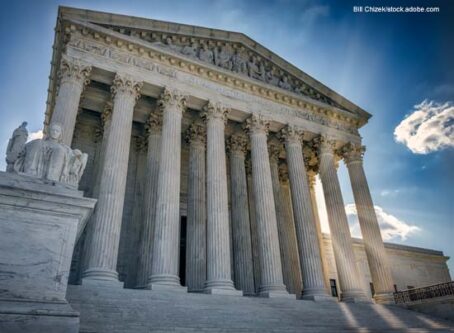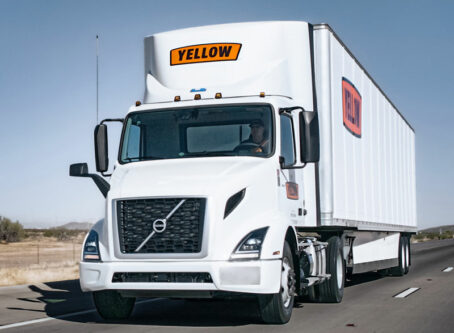Do toll facilities need a $9 billion federal bailout?
Do toll facilities really need any federal funding, let alone $9 billion?
On May 21, the International Bridge, Tunnel and Turnpike Association, which represents toll facilities, held a news conference regarding the state of U.S. transportation and tolling amid the COVID-19 pandemic. During the news conference, stakeholders shared information about declining toll traffic and revenue.
The news conference came after IBTTA sent a letter to Congress requesting more than $9 billion in federal funding. Issued on April 7, the letter asks for the money to be included in Phase 4 emergency relief “to offset the huge loss in toll revenues expected in the next 12 months.”
IBTTA’s argument for federal funding for toll facilities
According to IBTTA, 128 operators run 342 toll facilities in 34 states. They support than 8.5 billion freight and passenger trips each year. Those trips generate more than $20 billion a year in toll revenues for maintenance and upgrades on 6,300 miles of highways, bridges and tunnels.
During the news conference, IBTTA CEO Patrick Jones said that since mid-March, toll facilities have seen traffic and revenue declines ranging from 50% to 90%. To say that the pandemic caused a disruption to toll facilities would be an understatement.
According to IBTTA’s letter, “unless toll facilities receive immediate relief, many will be forced to comply with bond covenant requirements, which could necessitate reductions in workforce, adding to the rapidly swelling ranks of unemployment; delays in capital projects, slowing the economic recovery that will be desperately needed; and increased pressure on elected officials to consider toll rate increases.”
Furthermore, toll facilities are concerned that without federal aid, their credit ratings will be downgraded. That could make it difficult to secure more private investment. In fact, the $9.2 billion they want stems from a model that relies on credit rating agency estimates.
Do toll facilities really need a bailout?
In its letter, IBTTA claims that U.S. toll facilities are critical infrastructure. Really, they are not. They fund certain critical infrastructure projects, but toll facilities themselves are not critical infrastructure.
What IBTTA is essentially asking for is infrastructure funding. This is something infrastructure stakeholders, including the trucking industry, have been waiting for ever since President Donald Trump promised to get an infrastructure bill on the table in his first 100 days in office. Toll facilities are just a source of funding for critical infrastructure. If IBTTA is concerned about critical infrastructure, then Congress needs to inject billions, maybe even trillions, directly to infrastructure, not to the middle man.
Toll facilities have a wide range of resources that do not warrant a federal relief funding.
These are large corporations. CEOs oversee up to billions of dollars of revenue backed by private investment. They have their own department that focuses exclusively on its finances. Unlike the airline industry, toll facilities get support in several ways from local, state and federal governments.
During the news conference, representatives of toll facilities all stated the best way to tighten their belts: deferring capital projects. Speaking of capital expenditure, that in and of itself is controversial. The U.S. Department of Transportation’s inspector general has found that the Federal Highway Administration “has not followed its procedures to ensure project financial plans assess the appropriateness of a P3 for project delivery, as required by law.” Essentially, a lack of oversight has potentially forced taxpayers to overpay for high-dollar projects.
Instead of “deferring capital projects,” they can save money by not overpaying for projects. In fact, there are projects that should not be on the docket at all, which brings us to Pennsylvania.
Two years ago, the Owner-Operator Independent Drivers Association filed a lawsuit against the Pennsylvania Turnpike Commission. The lawsuit claimed the tolls were unconstitutionally excessive. Furthermore, OOIDA claims that PTC is using toll revenue to pay for state projects that have nothing to do with the Turnpike, including operations, maintenance or improvements. Although that lawsuit is over, it still calls into question where all this toll revenue is going.
Just because the courts will not hear the case does not mean the problem is not there.
It only means that according to the judicial system, toll facilities are legally wasting taxpayers’ dollars.
The only thing toll facilities are really worried about is their credit rating. Talk about a first-world problem. In fact, the stakeholders themselves said during the news conference they do not really need the federal government’s help.
“We are hopeful that there will be help extended from the federal government, but we’re not necessarily making our plans dependent upon those requests … In the short term, we believe we have a good plan and we have the dollars necessary to meet our near-term obligations with or without federal assistance,” Chris Tomlinson, executive director of the Georgia State Road and Tollway Authority, said.
“We have an immediate impact and a long-term impact that I think the federal government, if they can’t, as my colleague mentioned, we’re going to be fine, but I’m hoping the federal government looks at our industry as a way of bolstering the economy and getting everybody back at work,” Samuel Johnson, president of IBTTA and chief operations officer for the Transportation Corridor Agencies of Orange County, Calif., said.









